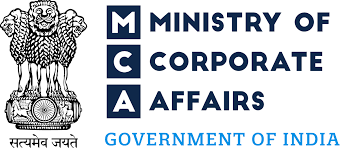CURRENT AFFAIRS
Get the most updated and recent current affair content on Padhaikaro.com
Nidhi Companies
- Vaid's ICS, Lucknow
- 23, Apr 2022

The Ministry of Corporate Affairs (MCA) has tightened the rules for Nidhi Companies.
About Nidhi companies:
Meaning:
- Nidhi Company is a type of Non-Banking Financial Company (NBFC).
- It is formed to borrow and lend money to its members.
- It inculcates the habit of saving among its members and works on the principle of mutual benefit.
Licence:
- Nidhi Company isn’t required to receive the licence from the Reserve Bank of India (RBI).
- Nidhi Company is registered under the Companies Act.
Prohibited activities:
- Nidhi Company can’t deal with chit funds, hire-purchase finance, leasing finance, insurance or securities business.
- It is strictly prohibited from accepting deposits from or lending funds to, any other person except members.
Members:
- Minimum of seven members is required to start a Nidhi Company out of which three members must be the directors of the company.
Significance:
- Nidhi companies are very popular in South India and are key players in the financial system as they mobilise funds from their members and give loans to them at a lower interest than commercial banks.
New Changes introduced:
-
- Registration: To become a Nidhi company, the entity has to first register as a public limited company, which has more disclosure requirements than a private limited company.
- Declaration: a public company set up as a Nidhi with share capital of 1 million needs to first get itself declared as a Nidhi from the Union government.
- Membership: This can be done by submitting an application showing a minimum membership of 200 and net owned funds of 2 million within 120 days of its incorporation.
- The promoters and directors of the company have to meet the criteria of fit and proper person as laid down in the rules.
- Concept of deemed approval: That is, if no decision on the application is conveyed to the company within 45 days of filing the application, approval would be deemed as granted.
- No Loan to companies: Only individual members are allowed in Nidhi companies and it cannot give loans to companies.
FACTS FOR PRELIMS
NATPOLREX-VIII:
- It is the 8th edition of the National Level Pollution Response Exercise.
- Conducted by Indian Coast Guard (ICG) off Mormugao harbour, Goa.
- The objective of NATPOLREX-VIII is to enhance the preparedness and response capability of all the stakeholders in combating marine spills.
- It aims at validating the procedures and guidelines as contained in the National Oil Spill Disaster Contingency Plan (NOSDCP) at the national and regional levels.
Vagsheer:
- Vagsheer, the sixth submarine of the P75 project of the Indian Navy was launched recently.
- It is the last of the Scorpene class submarines made under the P75 project.
- Under P75, INS Kalvari, INS Khanderi, INS Karanj and INS Vela have been commissioned. Sea trials are on for Vagir.
Vagsheer is named after the sand fish, a deep sea predator of the Indian Ocean. The first submarine Vagsheer, from Russia, was commissioned into the Indian Navy on December 26, 1974, and was decommissioned on April 30, 1997.
What is a ‘Poison Pill’ defence?
Twitter has countered Elon Musk’s offer to buy the company for more than $43 billion with a corporate tool known as a poison pill, a defensive strategy familiar to boardrooms trying to fend off takeovers but less familiar to everyday investors.
- This defense mechanism was developed in the 1980s as company leaders, facing corporate raiders and hostile acquisitions, tried to defend their businesses from being acquired by another enterprise, person or group.
- A poison pill is a maneuver that typically makes a company less palatable to a potential acquirer by making it more expensive for the acquirer to buy shares of the target company above a certain threshold.